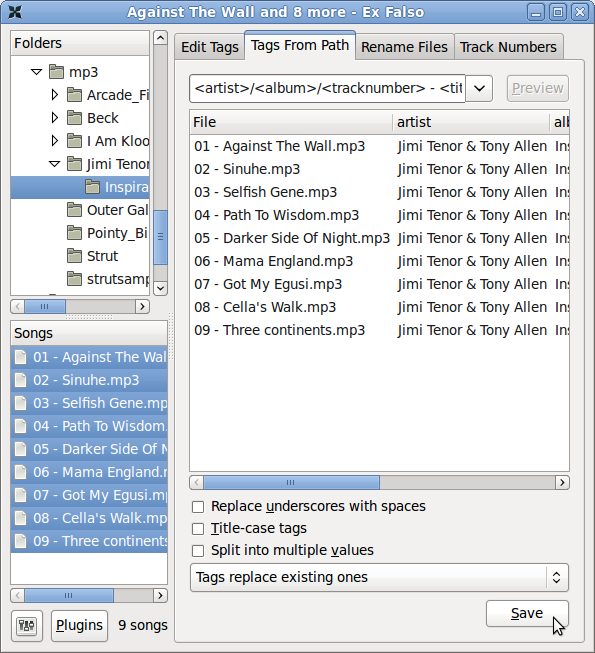
This parameter is however only used for formats where the encoding isn't explicitly To open files using a specific encoding, you can use the encoding parameter. Url, isrc, text, initial_key, lyrics, copyrightĪditionally you can also get cover images from ID3 tags: tag = TinyTag.get('/some/music.mp3', image=True) The extra dict currently may contain the following data: Tag.track_total # total number of tracks as stringįor non-common fields and fields specific to single file formats use extra tag.extra # a dict of additional data Tag.duration # duration of the song in seconds Tag.disc_total # the total number of discs Tag.audio_offset # number of bytes before audio data begins List of possible attributes you can get with TinyTag: tag.album # album as string > Ĭheck python -m tinytag -help for all CLI options, for example other output formats` Print('It is %f seconds long.' % tag.duration)Īlternatively you can use tinytag directly on the command line: $ python -m tinytag -format csv /some/music.mp3 Print('This track is by %s.' % tag.artist) It can determine track number, total tracks, title, artist, album, year, duration and more.

Tinytag only provides the minimum needed for reading MP3, OGG, OPUS, MP4, M4A, FLAC, WMA and Wave meta-data.
#Mp3 tag utf 8 converter code


 0 kommentar(er)
0 kommentar(er)
